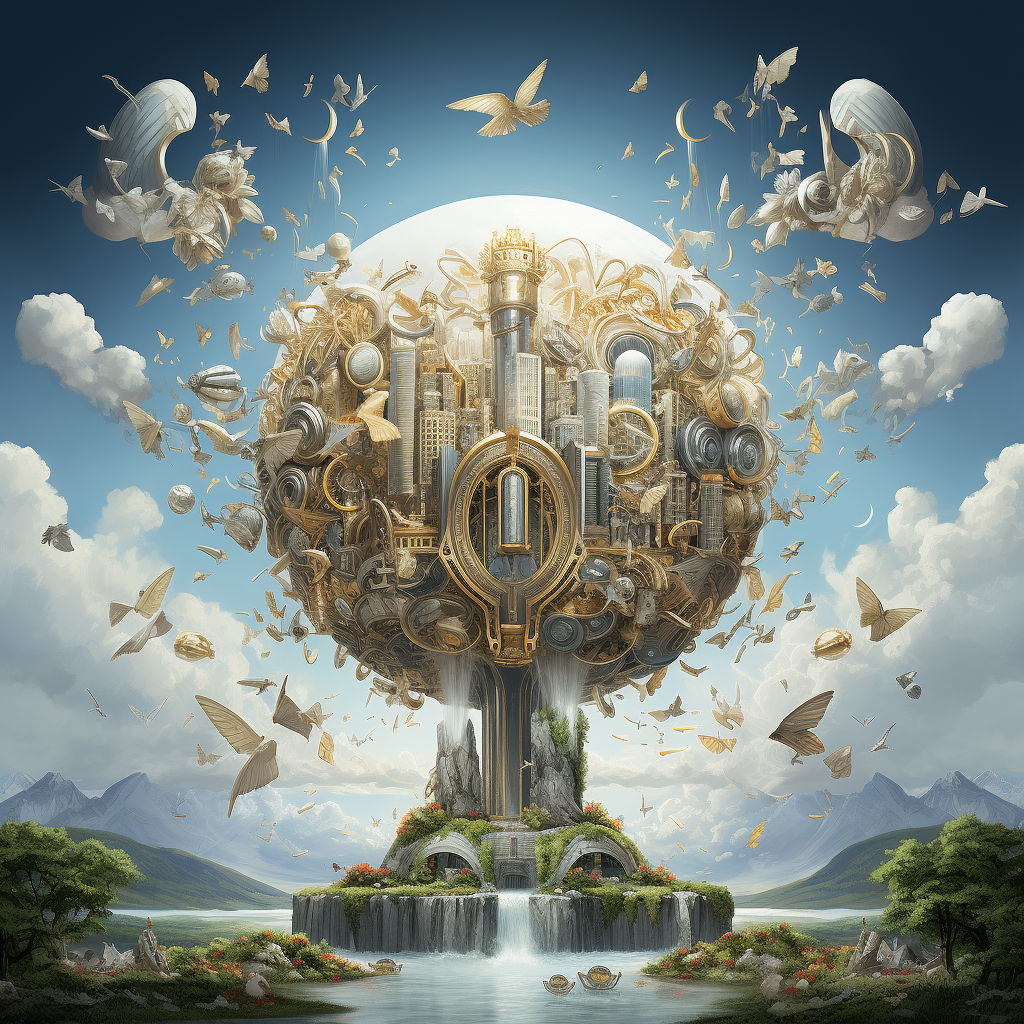
- By : lunamoonai
- LUNAAI

Revolutionizing Online Content Creation: The Role of AI
In the digital age, content creation is a cornerstone of online engagement, acting as the primary conduit through which individuals and businesses communicate with their audience. From blogs and articles to videos and social media updates, the demand for fresh, relevant content has never been higher. However, this relentless need for content creation presents significant challenges, including time constraints, the quest for originality, and maintaining high-quality standards. It is here, in the nexus of creativity and technology, that Artificial Intelligence (AI) emerges as a transformative force in online content creation. This article explores how AI aids in this domain, enhancing efficiency, personalization, and innovation.
The Advent of AI in Content Creation
AI’s role in content creation is not about replacing the human touch but rather augmenting it. Through a synergy of algorithms, machine learning, and natural language generation (NLG), AI technologies empower creators by providing tools that streamline the production process, make creative suggestions, and facilitate personalized content at scale.
Streamlining Content Production
One of the most tangible benefits of AI in content creation is its ability to streamline the production process. Tools like AI-driven content management systems (CMS) can automate mundane tasks such as formatting, publishing schedules, and SEO optimization. This automation allows content creators to focus on the core creative aspects of their work, fostering a more efficient workflow. Moreover, AI can analyze vast amounts of data to identify trends and suggest content topics that are likely to engage audiences, thus demystifying the content planning phase.
Enhancing Creativity and Originality
Contrary to the fear that AI might stifle creativity, it actually serves as a catalyst for originality. AI-powered tools can assist in the brainstorming process, offering suggestions for headlines, content angles, and even generating draft outlines. These suggestions are based on the analysis of vast datasets, including competitor content and performance metrics, ensuring that the recommendations are grounded in what resonates with the target audience. Furthermore, generative AI models can produce creative content, from poetry to visual art, demonstrating AI’s potential to inspire and collaborate with human creators in novel ways.
Personalizing the Audience Experience
In today’s digital landscape, personalization is key to capturing and retaining audience attention. AI excels in analyzing user data to create highly tailored content recommendations, ensuring that viewers are presented with material that aligns with their interests and behaviors. This level of personalization extends beyond mere content suggestions; AI can customize content formats, layouts, and even messaging styles to match the preferences of individual users, thereby enhancing user engagement and satisfaction.
Elevating Content Quality and Accuracy
AI technologies play a pivotal role in maintaining the quality and accuracy of online content. Automated grammar and style checkers help ensure that content is polished and professional, while more sophisticated AI systems can check facts, verify sources, and even assess the credibility of content. This is particularly important in an era where misinformation can spread quickly online. By providing a layer of verification, AI technologies can help uphold the integrity of online content.
Challenges and Considerations
While the benefits of AI in content creation are numerous, there are challenges and ethical considerations. The potential for AI to produce biased or inaccurate content, if not properly supervised, underscores the ongoing need for human oversight. Additionally, concerns around the originality of AI-generated content and the implications for copyright must be navigated carefully. Ensuring transparency about the use of AI in content creation processes is also crucial to maintaining trust with audiences.
Conclusion
The integration of AI into online content creation heralds a new era of efficiency, personalization, and creative potential. By streamlining mundane tasks, offering creative insights, and delivering personalized content experiences, AI technologies enrich the content creation landscape. As we move forward, the symbiotic relationship between human creativity and artificial intelligence will continue to redefine the boundaries of what is possible in content creation. Embracing these technological advancements while being mindful of their ethical implications will be key to harnessing the full potential of AI in driving meaningful online engagements.
- Tags :
- Datascience
- Programming
